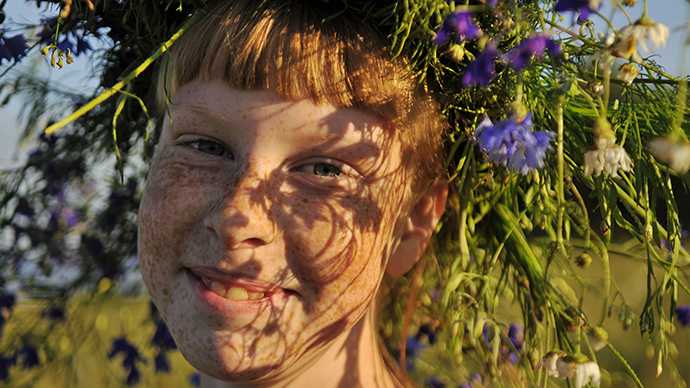Red alert: Climate change could obliterate the ginger gene

A gene that cultivates red hair faces extinction as climate change alters Northern European weather patterns, according to a group of Scottish scientists.
The gene mutation, which yields red hair and a particularly pale complexion, renders DNA in skin cells more vulnerable to cancer and damage from harsh sunlight.
Scientists claim that the red-haired gene evolved in regions prone to cloudy skies and low levels of sunlight.
“We think red hair in Scotland, Ireland and in the North of England is adaption to the climate. I think the reason for light skin and red hair is that we do not get enough sun and we have to get all the Vitamin D we can," UK media cites Alistair Moffat, managing director of Galashiels-based ScotlandsDNA, as saying.
ScotlandsDNA is a recently formed company that conducts historical and genetic analysis relating to DNA. Moffat, a UK-based writer, journalist, and former Director of the Edinburgh Fringe Festival, also runs an array of similarly focused sister companies in Britain and Ireland.
If temperatures continue to rise in these regions, as myriad climate scientists predict, it is thought the red-haired gene may regress as an evolutionary response to climate change.
"If the climate is changing and it is to become more cloudy or less cloudy then this will affect the gene…If it was to get less cloudy and there was more sun, then yes, there would be fewer people carrying the gene,” Moffat emphasizes.
Commenting on the potential extinction of this rare gene, a scientist who wished to remain anonymous told The Independent: “Climate change could see a decline in the number of people with red hair in Scotland…It’s just theory, but the recessive gene may likely be lost. The recessive gene could be in danger."
The gene is relatively rare according to reports, with only one to two percent of the entire global population having red hair. Most of these individuals are scattered throughout Ireland, Northern England and Scotland.













